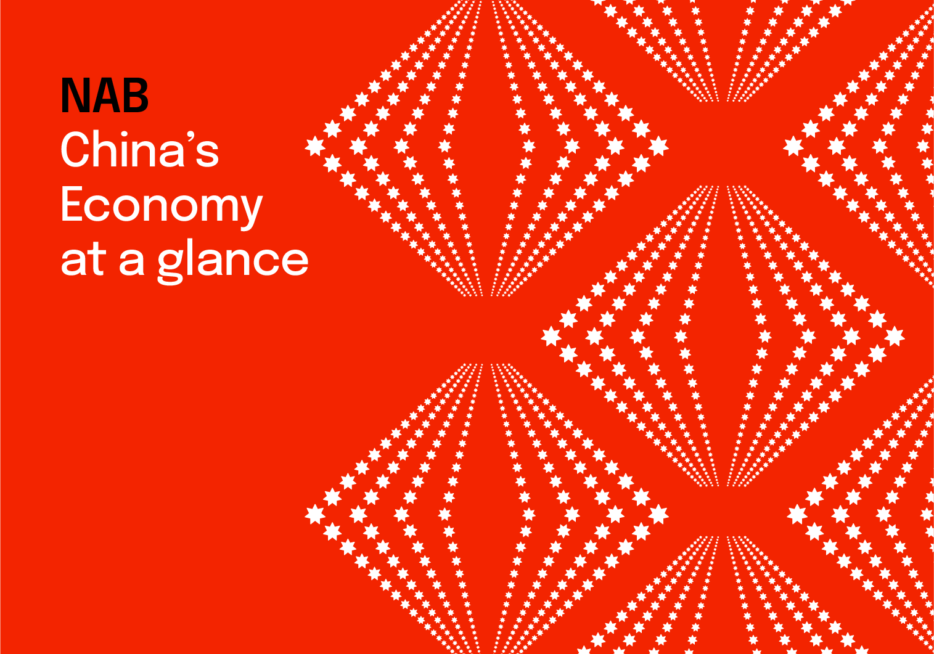Tariff pause gives China’s economy some breathing space, but longer-term uncertainty persists


Insight
Whether Australian businesses realise it or not, China’s e-commerce giants are clearly jostling for the best position to take advantage of Australian products and services.
Jemma Xu, co-founder and CEO of Tripalocal, a Melbourne-based travel platform that serves the Chinese market, says there’s no better time for Australian start-ups to jump head-first into the world’s second biggest economy.
Speaking after the Australia Week In China trade delegation in 2016, Xu said that Chinese government support was fostering a start-up culture in the country, which is presenting Australian entrepreneurs a great opportunity to get involved.
“It’s really a bit of a pity if Australian start-ups aren’t looking at the China market now – it’s very good timing as all the stars are lining up right now.”
Tripalocal started in Australia with support from Telstra’s muru-D incubator, and has now expanded to China with support from a Chinese Venture Capital fund and partnerships with China outbound travel platforms.
During the trade delegation, Xu joined Prime Minister Malcolm Turnbull in opening a so-called “landing pad” in Shanghai, which Australian entrepreneurs can use as a temporary base when they first test out the Chinese market.
“The whole idea is that start-ups can base themselves there and use that as a nodal point to meet contacts, to make networks” says Xu.
“Obviously it’s a physical space but also features the intangibles of networks and connections that the landing pad would provide.”
Having a base in China and spending a lot of time in the market is crucial for any business wanting to make headway there, says Xu, who herself has spent 80-90 per cent of her time in the country over the past 18 months.
“There are lots of Australian start-ups that’ll come in, spend a couple of weeks here and then leave, but spending two weeks or a month here isn’t good enough,” Xu said.
“The founders, or at least someone from the founding team needs to get on a plane and spend a lot of time in China.”
Xu said that two of the most important and consequential meetings she has had with some of the country’s top super angel investors happened after first being introduced to one of them on WeChat, the hugely popular instant-messaging app.
She says the investor asked for a snap meeting thanks to their conversation on WeChat.
“At 7am he called me and said ‘I’m in Shanghai, I’m free until 9:30, why don’t we have breakfast?’,” Xu said.
Xu says the celebrity investor’s social media following alone could be a game-changer for Tripalocal’s marketing campaigns and it all came about because of an impromptu meeting.
According to the 27 year-old, there’s probably never been a better time for Australian start-ups to get into the Chinese market.
On the Australian side, the recently inked free trade deal is opening up opportunities in tourism, education, health and aged care, and other sectors in the Chinese market.
While on the Chinese side, the central government has set up a $US6.5 billion “guidance fund” to foster new start-ups.
“Innovation is probably the most important thing in terms of driving the economy forward and trying to boost growth in China,” says Xu.
“If you go down to the provincial and city level, you’ve got all these hubs setting up in Beijing and Shanghai, which can offer all sorts of incentives from funding to tax support, at a scale which is unseen in Australia or pretty much anywhere else in the world.”
Whether Australian businesses realise it or not, China’s e-commerce giants are clearly jostling for the best position to take advantage of Australian products and services.
“If you look at Alibaba, JD.com, and WeChat Pay, they’ve set up offices in Sydney and Melbourne over the last 6 months to a year. So obviously these guys see Australia as a strategic market.”
It’s all or nothing, and you have to commit to living in China
Entering China is a binary decision – you’re either all-in or don’t go near it. Spending a few weeks here isn’t enough – you need long-term on-the-ground commitment from the founders. Meetings are often at short notice – my meetings with some of China’s most famous super angel investors have been for breakfasts where I had one hour notice. Some of the most useful people I met was simply because I was in the right place at the right time. Spending a lot of time away from China would make all of this very difficult.
China isn’t one market
China is the sum of 34 unique markets (23 provinces, four municipalities, five autonomous regions and two special administration regions). Understand the customer base and initially only focus on the markets of interest. Our analysis showed that our core target market is in the Tier 1 cities (Beijing, Shanghai, Guangzhou) so initially we’re only focussed on these areas.
Set up an advisory board
We knew no one in venture capital, travel or the internet space in China. For our first two months, we formed an advisory board with a group of investing individuals. Without them, we wouldn’t have had 20+ meetings lined up in our third month. Everything else snowballed from there.
© National Australia Bank Limited. ABN 12 004 044 937 AFSL and Australian Credit Licence 230686.